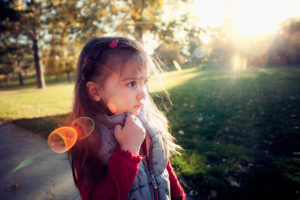This week I am concluding my series about the nine traits of temperament and how they help you understand your child as a unique individual.
Photo Credit: Travis Swan CC License
The Temperamental Trait of “Rhythmicity/Regularity”
Rhythmicity and Regularity – Some children innately have regular body rhythms and some children don’t! Children with irregular body rhythms can be quite challenging as they are likely to have inconsistent sleep and eating patterns. They usually resist a consistent schedule, but it is still very important to implement a regular schedule for them. They need to be put to bed at the same time every day, including weekends, in order to teach their bodies how to become regular. If, as a parent, you are irregular (only in the sense of your body rhythms!) you may need to be aware of implementing more consistency for your child.
Are you ready for daylight savings and sleep adjustments?
For some children this time change can be very disruptive, therefore, start planning now! Gradually start moving your child’s bedtime and waking time by fifteen minutes every day or two until you get to the new time. Start adjusting your own schedule too! By slowly adapting to the change now, you will have a smoother transition next week.
The Temperamental Trait of “Cautious First Reaction”
“According to Dr. Jerome Kagan at Harvard University, approximately 15% of all children are born with a tendency to become upset in new and unfamiliar situations. Their blood pressure rises, pupils dilate, pulse rates/escalates, and vocal cords tense. They may complain of stomach aches and even gag or vomit.” (p.249, Raising Your Spirited Child).
This “Cautious First Reaction” is tied into anxiety. Fortunately, anxiety can be managed with a variety of strategies. ( I have written a couple of blogs on anxiety: Helping Your Child Manage Anxiety and “I don’t want to go to school”.) It is important to realize that this is not a learned behaviour and that your child is not out to get you or embarrass you! It can be very difficult when your child appears to be the only one who doesn’t feel comfortable getting on the school stage or joining in with after-school activities. Keep in mind that they will need more warm-up time, and the stronger the attachment relationship with the new person, the better.
With my kids, we’ve kept a little book to record their reactions to new experiences – how they felt before the new event and how they felt after. For example, when my son was 4 years old we went to Legoland. As we arrived and entered the park he cried. My husband picked him up and cuddled him and continued to do this through the first ride. Our son continued to cry, but by the end of the ride, he said “Again! Again!” The rest of the day he had a great time. We drew a sad face of his feelings before the new situation and a happy face of his feelings at the end of the day. This same pattern happened when we went away with friends to their beautiful cabin – tears of apprehension in the car, followed by tears of sadness when we left because he’d had such a great weekend that he didn’t want to leave! Now that he’s six years old he can process and express his feelings better, but he still gets anxious about new situations. Starting grade one was difficult for him so we wrote down his thoughts and feelings as he explained them to us:
“My brain did not want to go to school. My brain said the day would not be right. I was crying a lot. When Mommy left the classroom my brain was still crying inside. I worked on my book and looked at the pictures that showed when I would go home. I still felt sad but I started to feel better. Recess was fun. Lunch was fun. Music in the gym was fun. My day was pretty good, the worst part of today was it was so hot. If it was cooler it would have been better.”
As he started to dread day two of school, we read him this note, (strategy: applying logic) and it reminded him that school had gone better than he thought it would. Even at age 6, he’s learning that his thoughts are external (ie. “my brain”) and that he can have power over his thoughts. Separation anxiety is very common for sensitive and anxious children, but with some anxiety management strategies and Linking the Separation strategies, it can get better.
I hope you’ve enjoyed this series on the nine traits of temperament. As we understand our children’s unique temperament, we can better help them navigate and adapt to their environment.
Warmly,
Want to Connect?
Subscribe now to receive free weekly parenting tips and inspiration.









Hi Sharon-This was a great post. I look forward to implementing the tools. starting tomorrow!